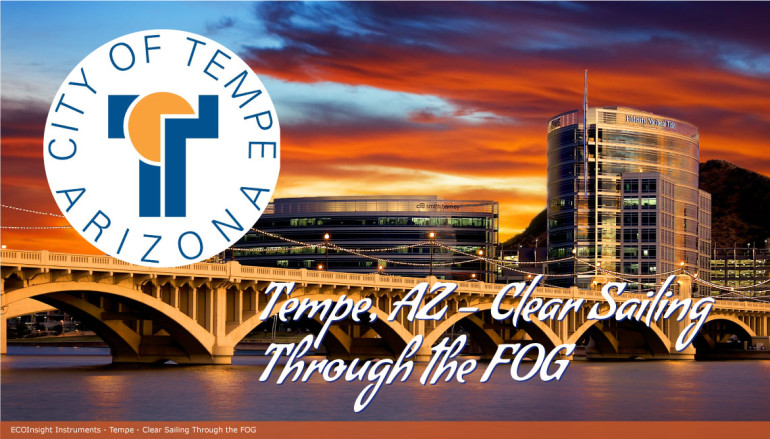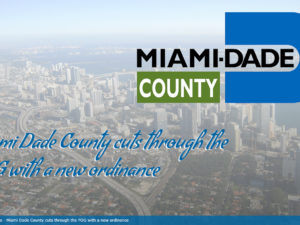
Tempe, AZ – Clear Sailing Through the FOG
Earlier this year, I joined a start up “Clean Tech” company that was focussed on developing smart meter instrumentation for the water & waste water industry. Our initial product would be a monitoring solution for the niche Fats Oils and Grease (FOG) market.
Described as a FOG “ecosystem”, the private sector (restaurants, food manufacturers, and institutions), municipal government, and even pumper companies would work in a collaborative program to combat the negative consequences that FOG has on sanitary sewer infrastructure, the environment, and the local economy.
The “ecosystem” looked good on the flowchart, and should work in theory, but would the required participants see the long term vision and “stick to the plan”? Generally speaking, society (the public, private business, and government) are in favour of sustainability / green initiatives. Who wouldn’t want the environment where they live, work, and play to be cleaner and healthier? However, when efforts to be compliant with those same regulations start to affect the financial bottom line, in the form of increased expenses or reduced profits, the private sector sees red!
Aside from overcoming the perception that government administered programs are too bureaucratic and ineffectual, this model went further and promised that each stakeholder would realize their unique value proposition. A win-win-win scenario!
I was tasked with promoting this business model, and receiving feedback from skeptical FOG industry players. Further complexity would be added by throwing our monitoring technology into the equation. Conveying the concept that having access to near real-time, geo-located FOG data represents a HUGE opportunity for all the participants would be the challenge.
The “holy grail” of sustainability programs at Tempe
Imagine my surprise when, early on in my research of the FOG market, I came across the City of Tempe, Arizona. For a framework I was describing in mere conceptual terms, the City was already in Year 2 of a real world FOG ecosystem!
They appeared to have created the “holy grail” of sustainability programs with their Tempe Grease Cooperative (TGC). The brainchild of David McNeil, Environmental Services Manager for the city, the TGC is a municipally created and administered sustainability program where all the public and private stakeholders, and ultimately, the taxpayers, actually benefit!
What’s in it for me?
By voluntarily joining the TGC, food industry members are guaranteed compliance with local sewer-use ordinances (no more infractions and fines), received discounts on grease interceptor servicing (through city-negotiated contracts with private pumper company), and reduce the likelihood of costly and potentially catastrophic sewer backups due to grease blockages.
From the city’s perspective, they now have a sustainability program in place for sewer infrastructure (significantly lower annual maintenance expenses), decreased the risk of sewer backups damaging the local business economy, and the potential of turning that waste grease into a source of renewable energy source.
Even the reputable pumper companies come out ahead. The TGC has a preferred pumper program that allows companies to bid on long term contracts (guaranteed revenue streams), and even grow with the program as new FSE members sign up.
I applaud the leadership role that Tempe has assumed to tackle the FOG issue, and hope that other municipalities in North America take the initiative and follow suit with similar programs in their jurisdiction.

